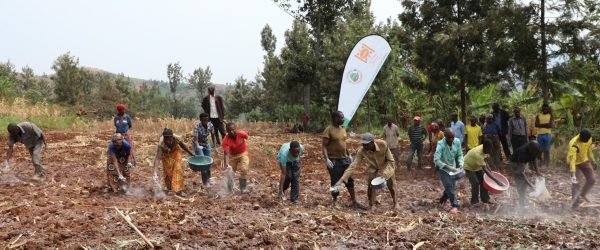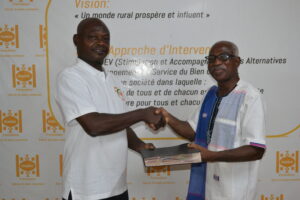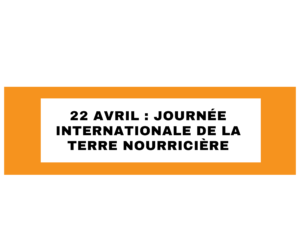Inades-Formation Burundi launches dolomite application in preparation for the 2024A season

The dolomite II pilot project is being carried out by Inades-Formation Burundi in the province of Cibitoke in north-western Burundi, in collaboration with IFDC (International Fertilizer Development Center). The aim is to restore soil fertility in the long term, thereby helping to boost food and nutritional security for Burundian households.
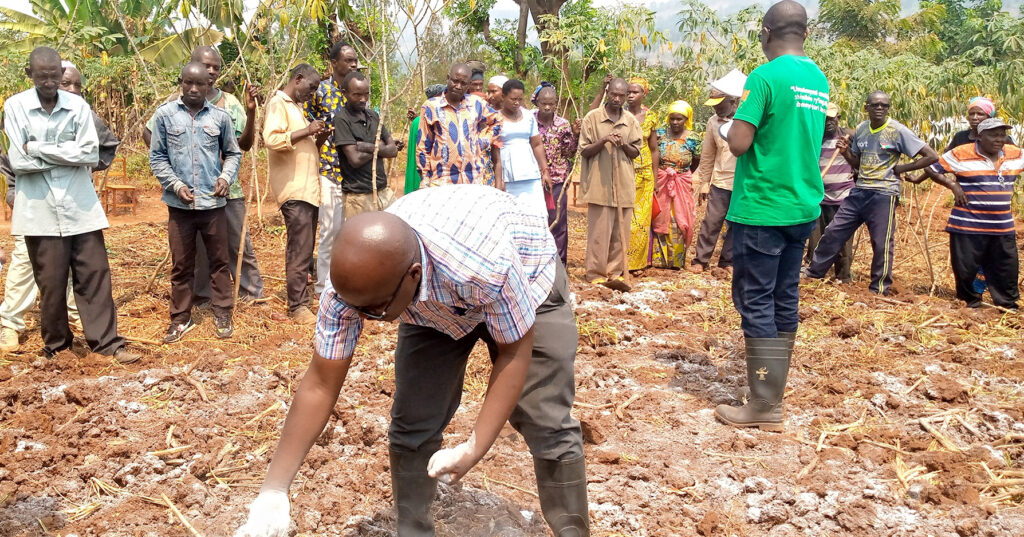 The first two weeks of August 2023 saw the launch of the application of dolomite at communal and hill level in order to correct the acidity of cultivable soils on 6 hills in the communes of Mugina and Bukinanyana, which generally have a pH ≤ 5 (very strongly acidic), hence the need for immediate action. To deal with this acidity in the area, Inades-Formation Burundi will distribute 555.572 tonnes of dolomite during the 2024A season.
The first two weeks of August 2023 saw the launch of the application of dolomite at communal and hill level in order to correct the acidity of cultivable soils on 6 hills in the communes of Mugina and Bukinanyana, which generally have a pH ≤ 5 (very strongly acidic), hence the need for immediate action. To deal with this acidity in the area, Inades-Formation Burundi will distribute 555.572 tonnes of dolomite during the 2024A season.
The causes of soil acidification are generally linked to farming practices that do not respect the environment. One example is the export of crop biomass, which creates an ion imbalance in the cultivated soil. Excessive use of synthetic chemical fertilizers is also a major cause of acidity. Combined with long-term rainfall, nutrients are easily leached out, and biological activity is greatly weakened by deteriorated soil texture and structure. This situation causes the soil to accumulate H+ ions, gradually lowering the pH (hydrogen potential, a measure of the soil’s acidity or alkalinity) to below 6.5, known as soil acidity. If the pH is < 5, the soil is said to be “very strongly acidic”.
Beneficiaries of the dolomite II project were made aware of the importance of dolomite in restoring, maintaining and improving soil fertility, and guaranteeing the economic and environmental sustainability of production systems.
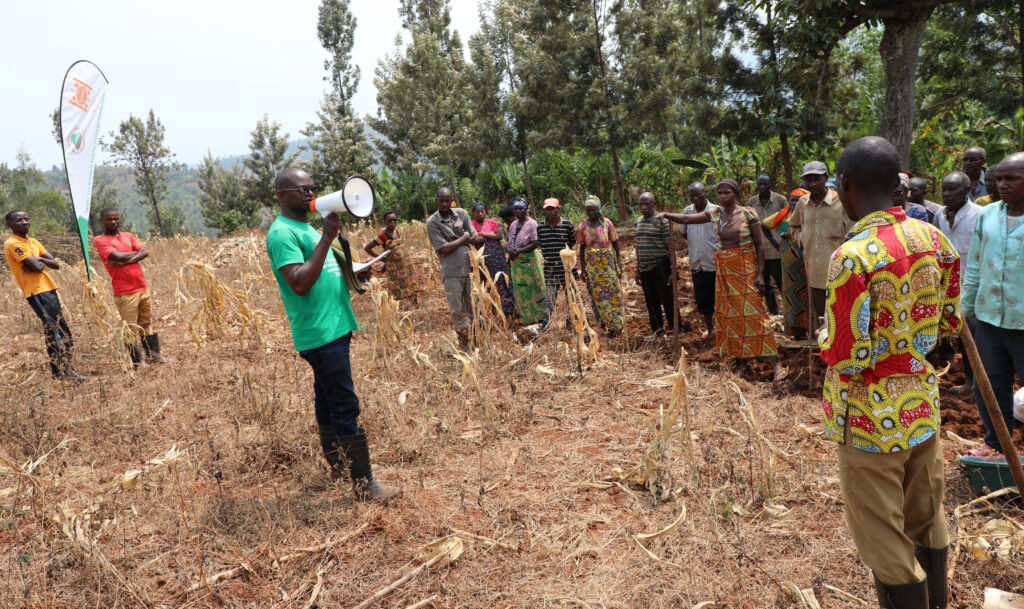
To facilitate the task, a dolomite data sheet was produced and distributed as a guide to application techniques based on local pH levels. The dolomite application technique contributes to the integrated agricultural approach through the use of organic manure, erosion control, the use of selected seeds and the respect of the agricultural calendar for all the activities required for the plant.
At the launch, the dolomite staff emphasized the importance of dolomite in absorbing the major elements (N, P, K) found in the fertilizers used, including organic manure. These elements are easily consumed by the plant thanks to the application of dolomite 1 month before sowing. However, it has been found that most of these elements are leached onto acid soils at pH ≤ 6.5, with many impacts on soil quality, the environment and human health.

There were 1,557 beneficiaries of the first phase of the dolomite pilot project, including 1,109 men and 448 women. Some of them testified to the importance of applying dolomite to their fields. Agricultural production has increased by a factor of 4 or even 5. Acidity gradually decreased, as the pH rose from -5 to over 6 in one year.
“My name is NTUKAMAZINA Salvator, originally from Rugendo hill, Commune Mugina. Member of a cooperative. When Inades-Formation Burundi taught us about the importance of applying dolomite, I thought it was a dream. We had an abandoned field because of the acidity.
We couldn’t harvest 100 kg of beans, but after applying dolomite, we finally harvested over 500 kg of beans. I urge my fellow growers to understand the importance of applying dolomite 1 month before sowing to increase production. After one year (2022-2023) of application and according to the results of pH measurements in my field, the agronomist accompanying us showed that the pH had risen from 5.2 to 6.8. We’re proud that our farm is becoming more and more fertile, and that our children will benefit from it. ”
The administrators encourage Inades-Formation Burundi for this initiative to restore soil fertility. Demand continues to grow for households in the area not covered by the project.
Published by Richard HAVYARIMANA
Advocacy and Communication Officer

